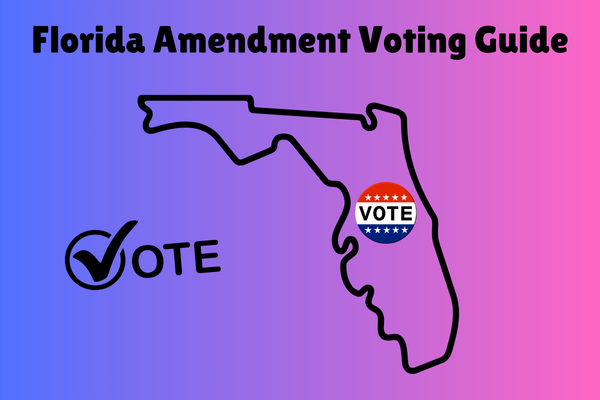What it States:
“Allows adults 21 years or older to possess, purchase, or use marijuana products and marijuana accessories for non-medical personal consumption by smoking, ingestion, or otherwise; allows Medical Marijuana Treatment Centers, and other state licensed entities, to acquire, cultivate, process, manufacture, sell, and distribute such products and accessories. Applies to Florida law; does not change, or immunize violations of, federal law. Establishes possession limits for personal use. Allows consistent legislation. Defines terms. Provides an effective date.”
Background:
Back in 2016, Floridians voted overwhelmingly to allow medical marijuana to be legal in the state. The amendment, which received 71% of the vote, paved the way for medical marijuana shops to open across the Sunshine State. Notably, marijuana and medical marijuana are both banned by the federal government. Despite this, 38 of the 50 states have medical marijuana legal, including Florida. Recreational marjuana has been legalized in 24 of the 50 states.
Legalizing marijuana could bring at least two-hundred million dollars worth of tax revenue to the state government. Additionally, the State of Florida could add an excise tax on marijuana, which would only increase the tax revenue that the state could get. Traditionally, excise taxes have been put on things like alcohol and tobacco.
Voting Yes:
A yes vote on Amendment 3 would pave the way for recreational marijuana in the State of Florida. It would eliminate the need for a medical marijuana card to get marijuana, which has been required in the state since recreational marijuana has been legal.
Who Supports Voting Yes?:
Most notably, former President Donald Trump has publicly said he would vote in favor of Amendment 3. In addition to the former President, the Democratic Party of Florida also endorsed a yes vote on Amendment 3. Numerous cannabis corporations have also financially supported the amendment, some of which include companies like Trulieve, Verano Holdings and Green Thumb Industries.
Voting No:
A no vote would keep marijuana the way it currently is in the State of Florida. Medical marijuana would keep its current legalization. Additionally, Floridians would need a medical marijuana card to access medical marijuana.
Who Supports Voting No?:
Unlike the former President, much of the Republican Party supports voting no. Firstly, the Republican Party of Florida recommends a no vote on Amendment 3. Furthermore, prominent Florida Republicans, Ron DeSantis, Rick Scott, and Florida Attorney General Ashley Moody all have endorsed voting no on Amendment 3.









